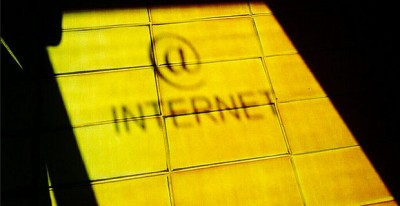US Supreme Court To Consider Limiting Internet First Amendment
Court may soon legitimize government control of speech

The Supreme Court is preparing to hear arguments on a case that may determine the future of free expression on the internet.
The case centers on remarks posted on Facebook by Anthony Elonis. The would-be rapper said he wanted to kill his estranged wife, kill an FBI agent, and shoot up a kindergarten class.
Elonis was subsequently convicted and sentenced to four years in prison for violating a federal statute that makes it illegal to threaten another person.
In his defense, Elonis argues the remarks were not serious. He says the lyrics were a form of spontaneous expression and he had no intention of harming his wife or an FBI agent who visited him to determine if he was a threat.
First Amendment advocates say a lower court ruling on the Elonis case threatens freedom of expression.
“A statute that proscribes speech without regard to the speaker’s intended meaning runs the risk of punishing protected First Amendment expression simply because it is crudely or zealously expressed,”states a brief from the American Liberties Union and other groups.
The Supreme Court has consistently ruled that a “true threat” depends on how speech is perceived by an “objective” person.
The Court says language perceived as threatening is not protected under the First Amendment. It has drawn a line between political hyperbole and verbal attacks on individuals.
Murray Rothbard and other advocates of the Non-Aggression Principle believe speech does not represent a true threat.
“Mere insults and violent words, vague future threats, or simple possession of a weapon cannot constitute an assault,” writes Rothbard, “there must be accompanying overt action to give rise to the apprehension of an imminent physical battery. Or, to put it another way, there must be a concrete threat of an imminent battery before the prospective victim may legitimately use force and violence to defend himself.”
If the Court rules Elonis’ speech is not protected by the First Amendment, it will have repercussions for speech over the internet.
“Indeed, the government, a master in the art of violence, intrusion, surveillance and criminalizing harmless activities, has repeatedly attempted to clamp down on First Amendment activity on the web and in social media under the various guises of fighting terrorism, discouraging cyberbullying, and combatting violence,” writes John W. Whitehead of the Rutherford Institute.
“We would do well to tread cautiously in how much authority we give the government to criminalize free speech activities and chill what has become a vital free speech forum.”

